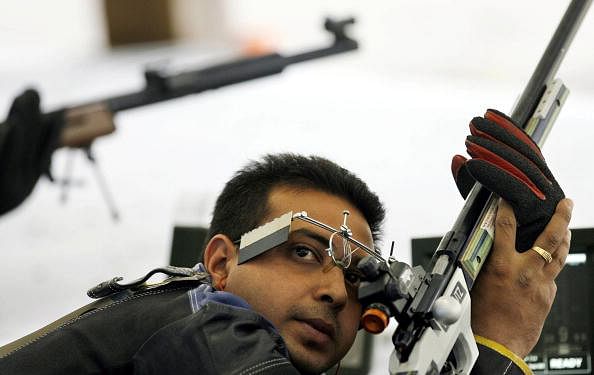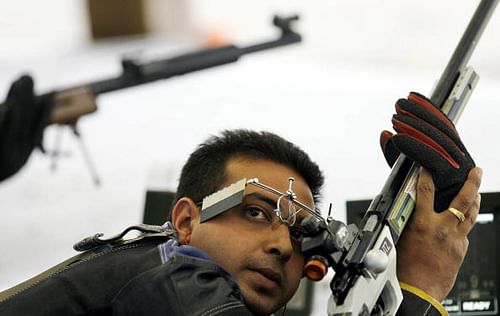
Shooter Joydeep Karmakar: The mind will go where the spirit takes it

Kolkata - He mulled selling his kidney to buy a rifle, became a national champion with a borrowed gun, has participated in 17 World Cups, missed out a London Olympics medal by a whisker and has been been named for an Arjuna Award for sporting excellence. Truly does shooter Joydeep Karmakar prove the dictum that the mind will go where the spirit takes it.
It doesn’t matter that Karmakar has joined the ranks of India’s “famous fourth” after sprinters Milkha Singh and P.T Usha, who also only just missed out on an Olympics bronze. He is, however, ecstatic at being nominated for the Arjuna Award although he thinks it’s come a tad too soon.
“Though I am very happy at the recognition, I think the award has come early. There are far better sportspersons than me who deserve it more than I do. I would have had no qualms if it came even five years later,” Karmakar told IANS in an interview.
Bitten by the shooting bug at the tender age of 10, he became the national junior champion in 1994, performing with a 45-year-old rifle borrowed from a club.
Desperate to have his own rifle, a young Karmakar was inspired by a Bengali movie “Saheb” in which the protagonist sells his kidney to marry off his sister – to think of also doing so.
“Young minds always have silly thoughts and it was one of such crazy ideas. But then I realised that my sports career could be under severe strain if I sell one of my kidneys. My life has been full of struggles and there was even a time when I had decided to give up shooting,” he said.
Much like his Olympic performance where he made a stunning comeback from a dismal 32nd position to eventually qualify for the finals, Karmakar’s promising career sans adequate funds took a turnaround only when it seemed it was nearing a dead-end.
“I had stopped training and was on the verge of quitting. But then I got a job in the railways and things started to change at the turn of the new century. With the help of loans and some sponsorship I bought my first gun in 2003, in the 17th year of my shooting life,” he said.
After only six days’ practice with the new gun, the shooter won an individual bronze at the National Championships. Since then, he has never looked back.
The first Indian to win a World Cup medal in the 50m prone event in 2010 at Sydney – where he fired 599 to surpass the Asian Games, the South Asian Games and the Commonwealth Games records – the veteran of 17 World Cups has his feet firmly on the ground.
The otherwise sombre Karmakar turns sentimental at the mention of the Olympics, where he conceded the bronze to Slovenian great Rajmond Debevec by just 0.9 points.
“I banged my fist on the mat in frustration and kissed my rifle in joy the next moment. Shooters by nature are boring and serious, but I could not hide my emotions seeing Debevec on the podium. It made me realise what I had missed.”
“Seeing me in tears, Randhir Singh (Indian Olympic Association secretary general) said: ‘You may have lost out on a medal but son, you have won a billion hearts‘. I could see many fans crying,” said Karmakar about his “unforgettable Olympic moment”.
What were his other gains from the globe’s greatest sporting extravaganza? “Steady nerves and a sense of oneness.”
“It was my first Olympics. I was very nervous. I am sure even Usain Bolt must have had butterflies in his tummy at his debut Games. But I would go to the next Games more confident and focussed.
“Life at the Games Village was an amazing and wonderful experience. We all were global citizens eating, talking and living together. It is the only event on earth where you find so much of diversity together. It instilled in me a sense of oneness and unity,” he said.
The Games over, he is enjoying the public adulation, recognition and a special promotion. But the 32-year-old father of a son has his eyes firmly on the 2013 World Cup and the 2016 Rio Olympics.
“I was fourth this year and everybody would expect me to be at the podium in the next Games. But I will have to start from scratch. I will have to qualify first and then think about medals.”